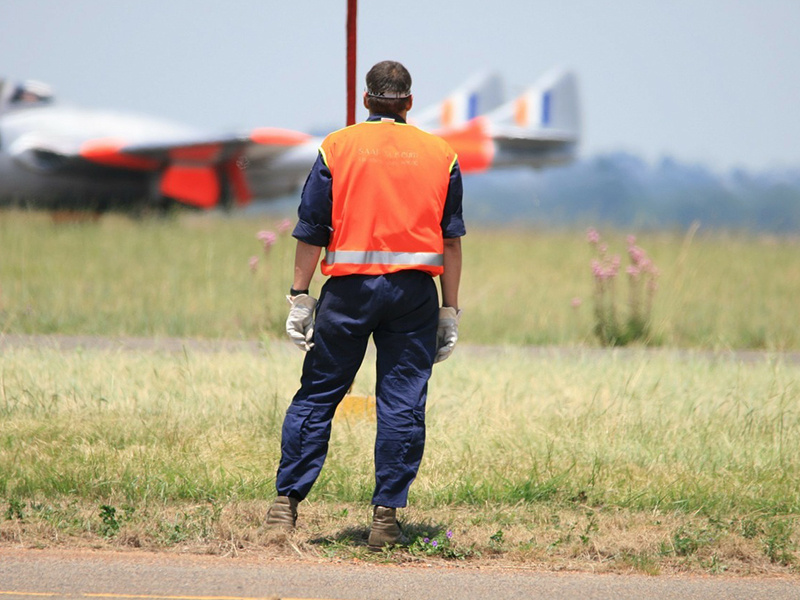


With a growth in demand and the lack of knowledge of aviation careers available, among other reasons, it’s been reported by the International Civil Aviation Organization that there’s a shortage in skilled aviation professionals, and that doesn’t just mean pilots.
When you think of aviation, it’s more than likely that one of the first few things that pop up in your head are pilots. Commercial pilots, charter pilots, military pilots– they’re pretty much the face of aeronautics. But there’s more to flying planes than most people care to remember.
Getting technical
Before a plane can even take off, it has to be functioning properly and who better to make sure of this than engineers, right?
Aeronautical engineers are tasked to develop the aircrafts, and think of ways to further improve the machinery they deal with. The opportunities in this particular field aren’t only narrowed down to fixing planes but also include research and design, as well.
Don’t be fooled, though. An aeronautical engineer’s job is rather different from that of an aviation technician’s. Although both require mastery in all things technical, a technician involves him or herself with working on the electrical side of things. That means everything that has to do with modifying or improving the electrical systems within the plane.
There’s quite a bit to learn within the world of aeronautical and electronic engineering as these are two to five-year courses but the jobs are rewarding. Those who enjoy innovating and tinkering should definitely consider a career in either of these.
Within these fields, one can earn as much as P35,000 per month or even more in the U.S. as one would earn around $3,015 a month. In Singapore, one can earn around $3,000 to $3,500 (Singaporean dollars).
Keeping things in check
Aside from making planes and making sure they run well, there have to be people to keep everything, both people and aircrafts, under control. That means assuring that the planes leave and arrive on time, that there is order in both the plane and the airport, and more.
It has to be remembered that running an airline is a business and in order for a business to work, there needs to be people who oversee its day-to-day operations. That’s where airport operations managers come in. Aviation management deals with supervision, organization and marketing, business, economics, and a strong understanding of the technical aspect of aviation, too. An aviation manager makes around P35,000 a month and can earn around $7,000 to $8,900 a month in the U.S.
Another very important person in aviation is the air traffic controller. Without them, flights wouldn’t even be possible, what with all the chaos that would’ve ensued both on the runways and in the skies. An air traffic controller has to manage ground traffic, monitor aircraft movement, and relay important announcement to pilots such as weather information and runway closures, among other things. In the U.S., an air traffic controller can earn $10,000 per month while they earn around P50,000 per month here in the Philippines.
Last but definitely not least, flight attendants! As most already know, flight attendants serve as the face of an airline and directly serve its customers. Not only does one need to be equipped with skills in customer service and hospitality but it also involves learning about safety and the aircraft itself. Aside from flight attendants, there are also ground attendants who are those that are seen within the airport, checking travel documents and weighing luggage. Members of the cabin crew such as these usually have a salary of P18,000 to P26,000 a month at entry level positions. In the U.S., they earn around $3,612 per month.
Although definitely not as mechanical or technical as the jobs that involve aircraft maintenance, the management side of an airline is equally as important and would require excellent training.
All of these roles along with security and even aviation doctors are essential in keeping an airline working properly. Each person and each team have something to contribute to how the airline runs and without one of these, no one would be able to fly anywhere, which is why the airline industry needs more people. Explore the endless opportunities and learn more about the aviation industry with WCC Aeronautical College, WCC Flight Attendant School, and WCC Pilot Academy .
The information contained in this website is for general information purposes only.
While WCC Aviation Company endeavors to keep the information up to date and correct, we make no representations or warranties of any kind, express or implied, about the completeness, accuracy, reliability, suitability or availability with respect to information published in this website.
Click here to read the Privacy Statement in full